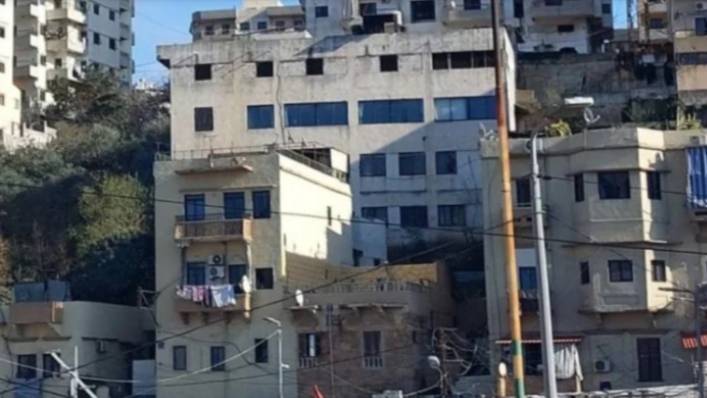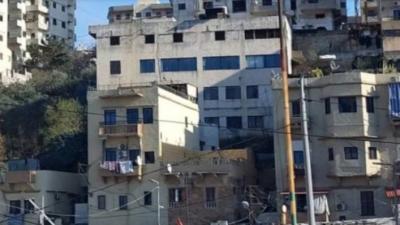These days, the residents of Tripoli, especially those living in old, dilapidated houses and popular neighborhoods, are prisoners of fear and rumors about earthquakes, most of which are inaccurate. These rumors spread like wildfire following the recent earthquake that hit Lebanon, coinciding with the quake that struck Turkey and Syria. Amid this atmosphere, the issue of cracked buildings in Tripoli has resurfaced prominently. How could it not when there are dozens of buildings in the city—be they old and heritage sites, those affected by past wars and conflicts, or random constructions built without engineering studies—all in a deteriorating urban state? Any potential tremor could cause them to collapse on top of their inhabitants!
The Tripoli Municipality possesses information and data regarding this issue as it had previously surveyed the buildings and is currently conducting a new assessment in cooperation with the Engineers Syndicate in Tripoli, according to its president. President Ahmad Qamar al-Din broke his silence yesterday due to the uproar surrounding the buildings at risk of collapse in Tripoli and the municipality's responsibility for them. He held a press conference where he distanced both himself and the municipality from any liability, citing what he termed the "financial incapacity faced by all municipalities in Lebanon, including the Tripoli Municipality." He implied that the municipality's current responsibility only involves assessing the damage to each house and notifying the owner that they must evacuate, further stating that they should "take care of themselves."
In his conference, Qamar al-Din, who has been in the Tripoli Municipal Council in various roles for several years, acknowledged that "previously (before the financial collapse), the municipality could have repaired these buildings; however, now there is no capability to do so after the funds available are insufficient for routine daily work." Here, Tripolitan circles expressed surprise at the municipality's prolonged silence regarding the issue of restoration despite knowing that these buildings could collapse at any moment, and that it previously had the financial means to fix them, given that the problem has existed for several years, not just today.
According to some circles, Qamar al-Din's words seem aimed at shifting the responsibility of restoration from the municipality to others, naming the Higher Relief Committee, the Lebanese government, and the city's deputies, who invited him to a meeting to discuss this matter as he mentioned. The meeting regarding the crumbling buildings is not the first of its kind to address such issues; it was just three months ago that city deputies met to discuss the collapse of the roof of the "American" school building and decided to build a temporary housing complex to relocate families from the cracked houses, yet no updates have been heard regarding this project.
Statements and declarations... but no action. Those involved note that all that is happening concerning the cracked buildings in Tripoli consists of statements and proclamations while what is needed practically is to start the restoration from somewhere, especially since the municipality always tries to evade the issue, claiming it's outside its jurisdiction. At times, it shifts responsibility to the Engineers Syndicate and at others to the Directorate of Antiquities and the Higher Relief Committee, which is rejected by insiders who believe restoration falls within the municipality's and its president’s authority.
Concerned parties see nothing new in Qamar al-Din's comments, viewing them as expected. They remarked to "Voice of the Nation": "A municipality unable to restore its building, which was burned years ago, cannot be expected to find solutions for dozens of buildings at risk of collapse in Tripoli," posing the question: "Doesn’t this issue deserve the Prime Minister Najib Mikati, a son of the city, to convene a government meeting specifically to discuss the fate of many families whose lives are threatened at any moment?"
In contrast, the initiative by Engineers from the "Future Movement" to assess the buildings at risk of collapse was highlighted. Ihab Khadr, head of the Builders Association in the Northern Engineers Syndicate, stated: "We have formed a committee of Engineers from the 'Future Movement' for voluntary assessments of buildings in Tripoli, Akkar, and other northern areas, aiming to assist in determining damages and building a database about them." He added, "In this work, we do not receive any financial support; our role is limited to inspecting homes and providing the owners with reports on their status, indicating whether they need to evacuate the damaged house or approach the municipality with the report to seek restoration aid. My colleagues and I in the group made this decision out of a sense of responsibility towards our people and for the public good. It is important to note that there are many buildings at risk, and through our efforts, we also facilitate the way for any party wanting to restore these buildings."
Ultimately, everything appears to be revolving around the initial stage of assessment and inventorying, but the crucial step of restoration must begin today, not tomorrow, before a catastrophe occurs. It is worth mentioning that Tripoli requires swift and urgent action to find a solution for these buildings, to prevent a repeat of past tragedies the city has endured, such as the collapse of the Fawwal building in the port area in late 2019, which claimed the lives of two brothers from the Kakhia family.




